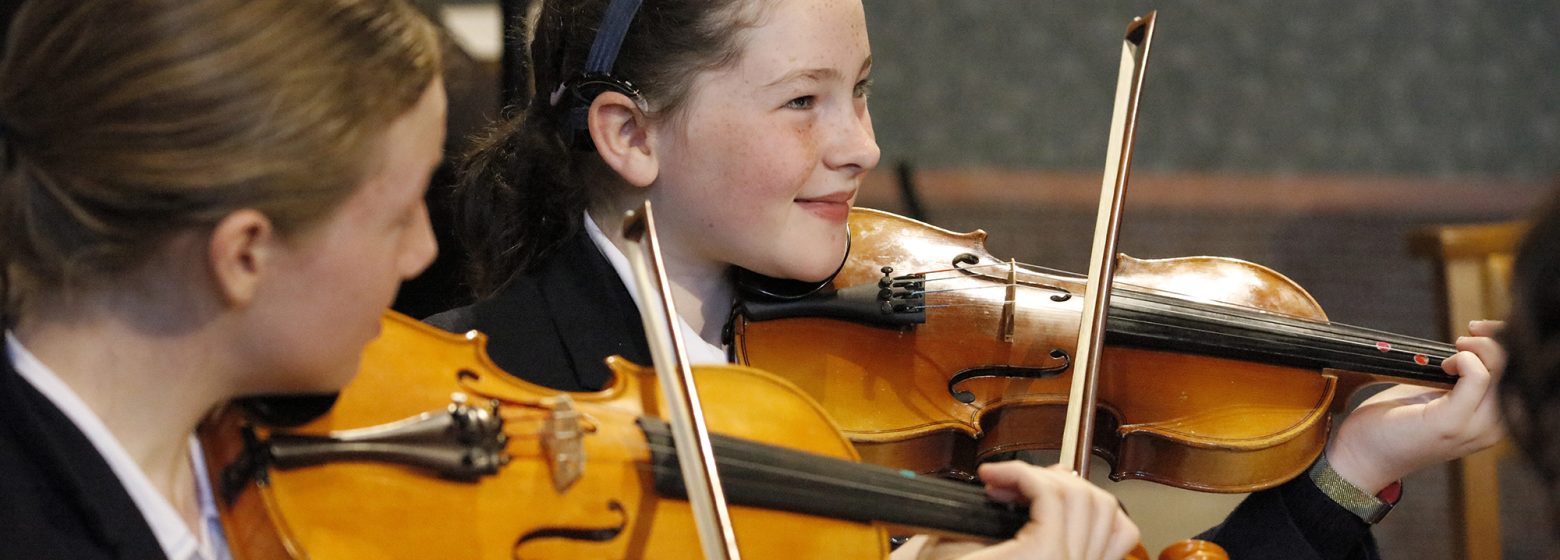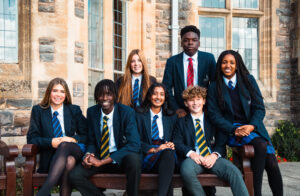Alumni and Parent Profiles
Petr Baron
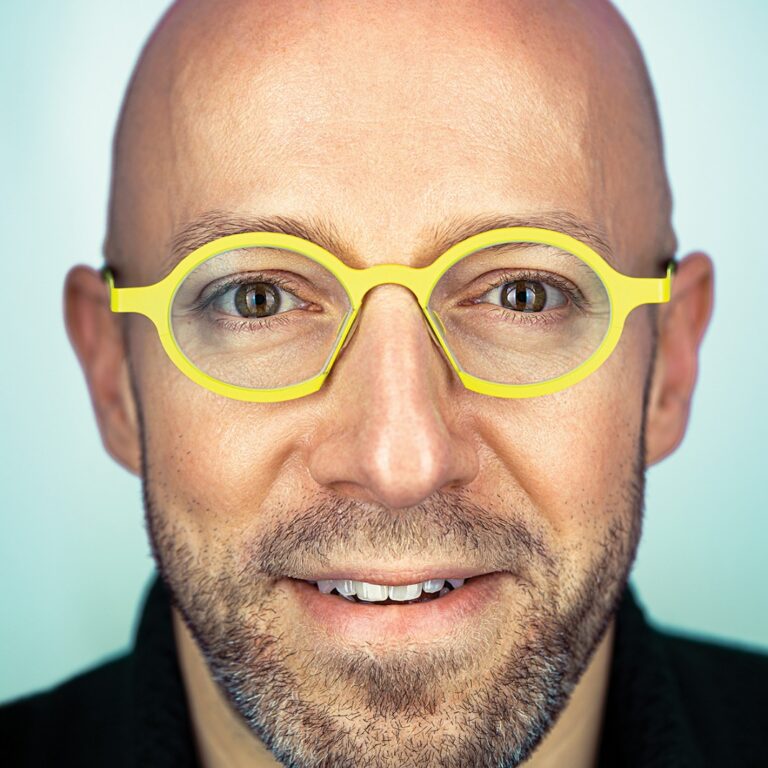
Petr Baron (1994-1999, Wills East) is a British banker, angel investor and entrepreneur who currently holds the position of CEO of challenger tbi. Petr was recently featured on the cover of the Romanian edition of Forbes Magazine.
What did Taunton school teach you?
I have to say one thing about Taunton, it gave me grit. I had to quickly adapt from the environment in Moscow and the burgeoning of a new era there to going into the Somerset countryside. I had to rebuild myself in this new environment and succeed in my education, a new language and making friends. It taught me that life is never smooth sailing, but that you can make the best of it.
After leaving Taunton, what drew you into the banking sector?
When I was in school I was always entrepreneurial and Russia in the 1990s was a place with so much opportunity. However, I didn’t know what direction I wanted to take, I just knew that I wanted to be in London and in a business school. Honestly I picked my degree, not because I knew it was a banking degree, but because I thought it sounded cool. It’s only when I started that I realised that actually this degree is for somebody who wants to go into investment banking or the financial services industry.
You have founded two banks, do you enjoy your job?
Whatever you do, you have to have fun. You spend so much time at work and, if you’re not enjoying it, you’re never going to do a good job. I’m always telling people, unless you feel excited about coming to work, it’s probably not what you should be doing.
For me, I think pure banking has a boring connotation to it. I see myself as an entrepreneurial banker, redeveloping the banking experience. Banking went from a branch teller making a decision to a more industrialised approach, where it became like a factory process rather than an individual decision. Now it has gone into what’s called Fintech, where it’s becoming much more consumer orientated and customer friendly.
What are the highlights of your career so far?
I’ve been lucky enough to have built two banks with my team. My greatest achievement is definitely having the ability to build great organisations filled with great people. The biggest enjoyment for me is seeing people grow, seeing the respect that they give you and you give back. A lot of people who worked with me in the first bank, now work here with me. It’s very important for me to build those working relationships. I’ve always tried to invest as much as possible into maintaining relationships and I still have many friends from Taunton. We just celebrated Anna’s 40th and many school friends from different parts of the word attended.
And if you were going to give any advice to OT’s who want to get into financial sector or banking. What would it be?
Never stop learning. Not just in banking, but every corporate world right now is changing at such a fast pace and if you stop you become irrelevant very quickly. You need to be constantly educating yourself, constantly open to new ideas. For me it’s a mantra, I have to learn something every day.
Secondly, be nice to people. Go out of your way to be helpful. You should pay attention to people, they will pay you back in time.
Brian Cappell
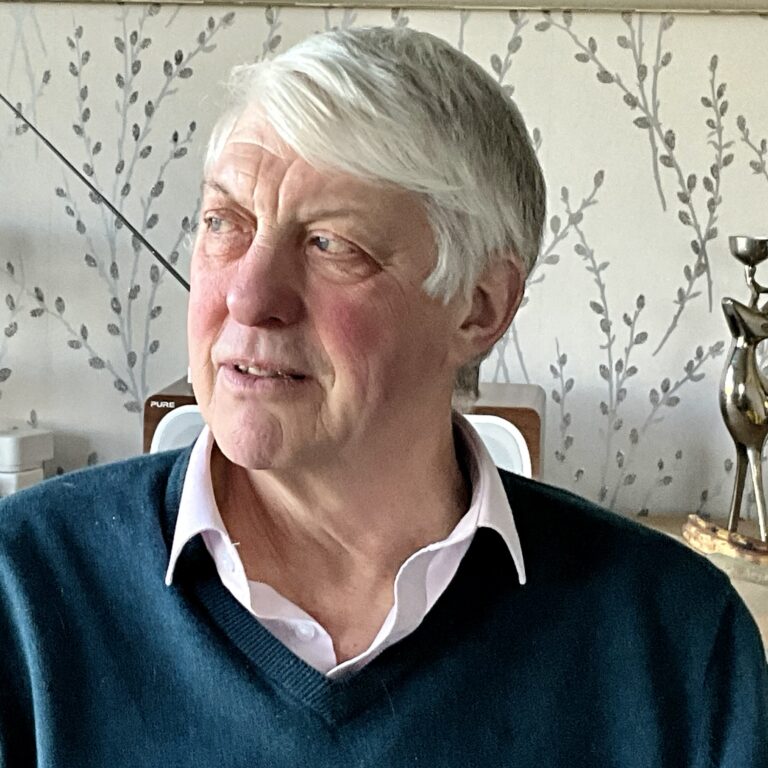
Brian Cappell (Marshall, 1966-1973) shares his memories of the school, his journey to Cambridge to study Natural Sciences and how he came to start his own company, Cambridge Micro Applications.
How did you come to choose Taunton School?
Private school was never seen as an option for my family. We were an ordinary family who had worked hard to get a semi-detached house on an estate in Galmington. I was bright at primary school so my teacher suggested that, as well as doing the 11 plus for entry into grammar school, my family should put me in for the scholarship exams at Taunton.
I didn’t receive a totally free place but received a county-assisted scholarship which was determined by how much your parents earned. My parents still had to pay for the kit and uniform, and I was always conscious that they were making sacrifices for me to attend Taunton.
What were you like at school?
I didn’t make friends easily and felt intimidated. Given my parents sacrifices, I felt I had to do well and I worked as hard as I could. As a scholar, we were a bit behind the boys who had been at Thone. We hadn’t learnt French or Latin, so we had special classes to bring us up to scratch.
My first two years at Taunton weren’t brilliant, although I did start to push myself up towards the top of the class. At the end of the second year, I accidentally said something to a Master which he took very badly. As a result of this, four chaps who referred to themselves as the ‘Big Four’ took me under their wing. My third year was great fun and there was a group of us who played a lot of table tennis and snooker.
What co-curricular activities did you do?
In primary school I had been skinny but fast and I used to win the local sprinting competitions. At Taunton I grew quite strong. I loved rugby, I was usually in the 1st or 2nd team, and I used to do very well in the shot put.
I also really enjoyed Hockey but never made it to a school team. I was in the lowly level 3 division but even if we weren’t that good, we were playing internal matches against people with a similar level of ability, so we had a great time.
What are your favourite memories from school?
Marshall used to have an old stone, two-storey structure at the bottom of its garden. We all worked together to decorate it and make it our house. When we used to stay late for societies or events, we would all bring something in, sausages, baked beans, eggs, and cheese. We chucked it all in a big pan and had it on toast. We had a good amount of independence in the evenings at school and it was great fun.
Can you remember any teachers at Taunton who had an impact on you?
Roger Priest, the Latin master, was brilliant. He introduced me to Classics and we studied literature in Latin, love poems and even little anecdotes. Dave Wrench was a great Chemistry teacher. When he didn’t understand something mathematical, he’d say, “I don’t understand this Cappell, take over the class and explain to me why it works!” and I’d have to go up to the board and go through it.
What did Taunton School teach you that you have used in your career?
Firstly, how to knuckle down and survive when things are not going well. Secondly, it gave me the self-confidence I needed. I’m not a naturally self-confident person, but I think I became more confident through Taunton because of my success in some areas.
What led you to study natural sciences at Cambridge?
I never really had an idea of where I wanted to go. The staff at Taunton suggested I should go to Cambridge and that Natural Sciences would suit me as you study four subjects. I thought, ‘that’s great, I don’t have to choose too much’. I went to Cambridge and did my first year and, during my second year, I vaguely thought I wanted to go into theoretical physics but it was too mathematical. My parents were proud of me getting into Cambridge and, when I got my offer letter on Christmas Eve, my mother and I had several sherries to celebrate.
In my third year I decided to change to Computer Science. My tutor was a bit discouraging, he said I had a good mind and, in those days, Computer Science was regarded as a bit of a doss subject. But I found the subject very interesting and not too theoretical so really enjoyed it. We had a couple of old computers in the lab, which we could occasionally play games on. When it was your turn, you had to load the game from paper tape into the machine.
What was your career path since leaving Taunton School?
I got a job with a small software consultancy in Cambridge where they were doing some very interesting techy things. Microchips had just been invented and people were starting to put them into circuit boards to make small computers. Nobody knew the limits of what we could do with them, so it was a very exciting time.
After travelling around North America (Editor, the stories of which are worth their own article), I went back to the same company and started working on a new project. This was a radiotherapy dose planning system developed with Addenbrookes, a big research hospital in Cambridge.
In 1982, I started a company with two guys who were clients of Topexpress. We created a system to distribute and display exchange rates in Midland Bank’s foreign exchange dealing room. We also worked with the tech giant Philips, who wanted us to create an interface to a new conference controller using the first touch-sensitive machines in the country.
After three years, I realised that I had been working extremely hard but only owned 1/3 of the company so I formed my own company, Cambridge Micro Applications 1985 Limited. In this company most of my work was to do with processing the streams of price data which flow from financial exchanges around the world.
I have never been an entrepreneur who wanted to make millions of pounds. I wanted to work with interesting people and do interesting projects with a reasonable salary and that’s what I did all my life.
What are you most proud of?
There was a project for Unilever. They were building a plant in Malaysia to manufacture a new sort of detergent bar. My system controlled the weighing and mixing of the ingredients and talked to the other parts of the plant. Other contractors would come in for a few weeks to put in their elements, but I was there for the whole project. I used to say to myself, ‘don’t look down’ as I had imposter syndrome, feeling the whole plant was depending on me and not being sure I had the necessary ability. I worked almost every weekend, but I was proud of that one.
In another project I created a system which collected prices in real-time from all the major European exchanges, received US prices from New York and distributed them to traders in London via satellite. The technology is commonplace today but was very new and exciting back then.
If you could give your Sixth Form self some advice, what would it be?
Look out for opportunities and, when they come, grab them. Also that opportunities do not always lead you where you expect.
You have left a gift in your will to Taunton to support Assisted Places, why do you think Assisted Places are important?
There is no way I would have received the education I did or achieved what I have in my career, without the help of an Assisted Place. It is wonderful to think that I can do that for someone else.
Stewart Cooper
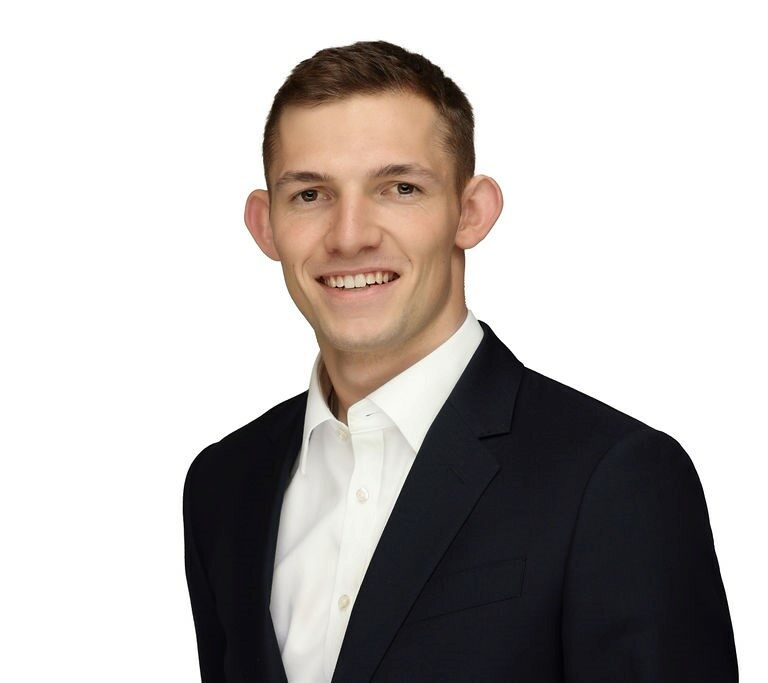
Stewart Cooper (Evans 2013-18) shares his reflections of Taunton, the values that drive him and some advice for students looking to pursue a career in wealth management.
What did you most enjoy about Taunton?
I was originally at Bromsgrove school, which I liked, but what strikes you at Taunton is the diversity in the student body and how much parents have sacrificed to send their kids here. It took me a while to settle in, but I was always up for doing something a little wacky. I remember singing the YMCA with a few friends for Evans in the House Music, despite being a terrible singer. Seeing the teachers join in at the back still sticks with me. I also did a bit of stand-up at the school talent show. My Headmaster, Lee Glaser (TS 2009-2022), must have thought I did alright as, a few days before Commemoration, he called me into his office. I had three days to put some material together to perform at the Commemoration service in front of over 1,000 parents and pupils. It was a complete surprise to everyone, including my father who was in the front row as a TS Governor.
Which teachers made a difference to you?
Mr Edwards (TS 2014, Maths and Housemaster of Marshall) was brilliant. At the start we were all a little terrified of him, but he took a group of us who were struggling with Maths A-level, made it fun and helped get us all achieve the grades we needed. There are not many teachers who can create a triple maths lesson on a Friday which their students look forward to.
I was also lucky enough to be part of several sports teams headed by Mr Hallows (TS 1990, Biology). He is a great cricketer but also a genuinely nice person and supported me throughout my time at school.
Why did you go on to study Economics at Surrey University?
I think economics gives you a great foundation, combining both business and maths whilst enabling constant engagement in current affairs. I feel, in comparison to other subjects I could have chosen, it has provided me with the best possible start to life in the workplace.
You did you work as a hockey coach for a year while at university?
I had coached whilst I was at Taunton and really enjoyed it. I love hockey and instead of playing rugby in the Autumn Term I would help coach and umpire the female hockey teams. In the Spring Term I would stay after my own sessions to coach the junior male teams with Mr Tarr. At university I was making strides into the 1st XI, but I picked up an injury which left me sidelined for the year. I wanted to make the most of my time and I love sport, so I secured a job coaching hockey at Cranleigh School, mainly on a volunteering basis. I learned an immeasurable amount from the experience, working with some fantastic and gifted students and seeing their development. The role was extremely fulfilling.
How did you get into wealth management?
I have always had a desire to go into business and particularly wealth management. I remember when I was about 10yrs old, my father would bring colleagues over to the house for dinner and I would talk to them about their jobs. I would also go to work with my father and see his offices around the world. It made me realise my passion to try something in business. After doing an internship at Asset Alliance I received a recommendation to join the wealth management firm of Arbuthnot Latham & Co. I knew this was the right path for me, it’s essentially about helping people, interacting with them and a little bit of golf!
What’s your advice for people looking to pursue a career in wealth management?
The city is competitive, and it can be cut-throat. Arriving as a Devon boy was quite the shock. I got my job by starting as a summer intern and demonstrating what I could offer. I do thinks it’s important to build a network. With so many people applying for the same jobs, it’s less important that you’ve been president of a particular university society and more important that you remember people and the small things they’ve mentioned to you. Making relationships personable is key.
What values are important to you?
I try to always put values in front of feelings, it allows you to do something even if it’s scary or uncomfortable. I have also always valued kindness. My mother is incredibly kind and sacrificial and I have always tried to emulate that. I remember when I was much younger, I would badger the referee in games if a player was hurt, I couldn’t understand why they were carrying on. Being someone my friends can call on and helping people in general gives me a great sense of belonging and I suppose I am happiest when doing so. However, I also now recognise that doing things in proportion is just as important, saying yes 100% of the time can leave you burnt out.
What motivates you?
I am very determined and a perfectionist. I often set challenging and somewhat unrealistic goals and then do my upmost to surpass them. Over the last six months I have studied and subsequently passed the Investment Management Certificate, a challenging first qualification which can often take much longer when undertaking a day-to-day job alongside. However, I was extremely determined and set myself the goal of completing it by September (six months), which has since given me great reassurance and self-confidence.
What do you do to relax?
I just love sport. I am a golf fanatic and I play regularly with a group of which I am the youngest by at least 15 years. I am not a big drinker, as I have seen my body go through quite a bit, and I really enjoy my fitness, it helps keep my physical and mental shape in check. Outside of that I also support Brentford FC where last year I was in their top 1% of match attendees.
If you are an OT interested in getting into wealth management and would like to know more then please get in touch and we can connect you with Stewart.
Simon Dawes
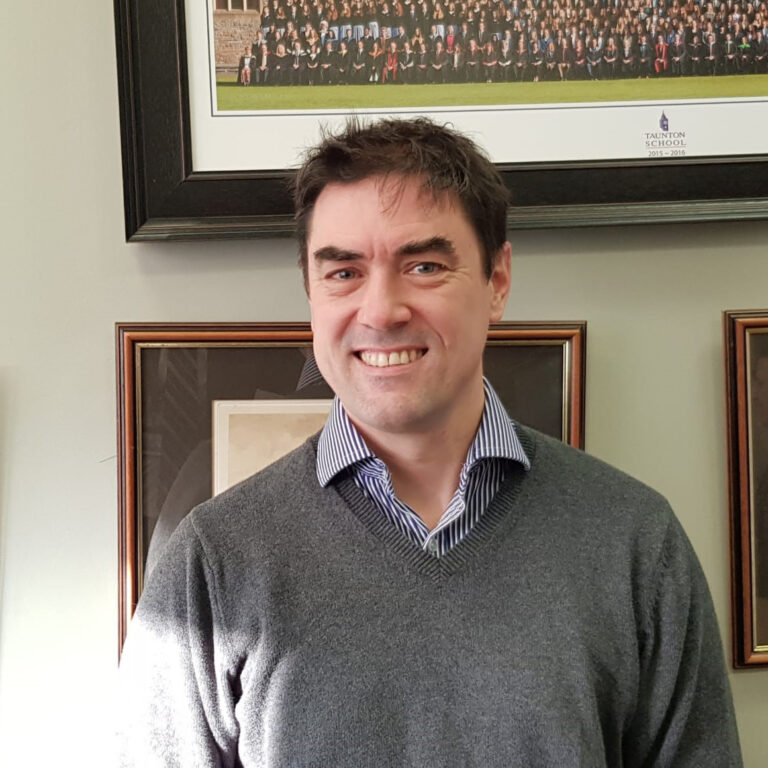
Simon Dawes is currently the Head of Sustainable Business Strategy at the Environment Agency. Simon is a senior sustainability leader, with over 20 years’ experience, covering all aspects from strategy development through to award winning delivery. An advisor at Board and CEO level, Simon’s experience stretches both public and private sector companies. Simon’s son currently attends Taunton Prep School.
Why did you choose Taunton for your child and what were your first impressions?
It was really apparent how well students are cared for at the school and I love the family atmosphere. The facilities are also phenomenal.
Tell us a little bit about your career and how you ended up as Head of Sustainable Business Strategy at the Environment Agency.
I studied a BSc in Geography and an MSc in Environmental Impact Assessment at Aberystwyth University. The Environment Agency was seen as the pinnacle of environmental work and they ran a national campaign to recruit. I chose to work in the South West because of my love for surfing. My first job was to monitor the landfill sites in the South West for pollution admissions. I then went on to become an Environmental Protection Officer before moving to head office and policy. I targeted the sustainability office as making change at scale is what really motivates me.
What is your current career highlight?
Presenting at Taunton Prep School to Yr 1 & 2 is definitely a highlight, but I would have to choose presenting our plan to be net zero by 2030 to the board of the Environment Agency and getting that signed off. This was a project I developed and have integrated into the business.
What do you think are the most important steps for a school or businesses developing a sustainable strategy?
Ask and listen to your pupils and staff. Any strategy must be led by them and can’t come from the top – ground swell is best.
What has been your highlight/favourite memory of being a Taunton School parent?
The end of term show and the nativity – just so good.
What’s your child’s favourite thing about school?
I asked this morning and I was told it was “getting to see my friends every day”.
Alexandra Drobysheva
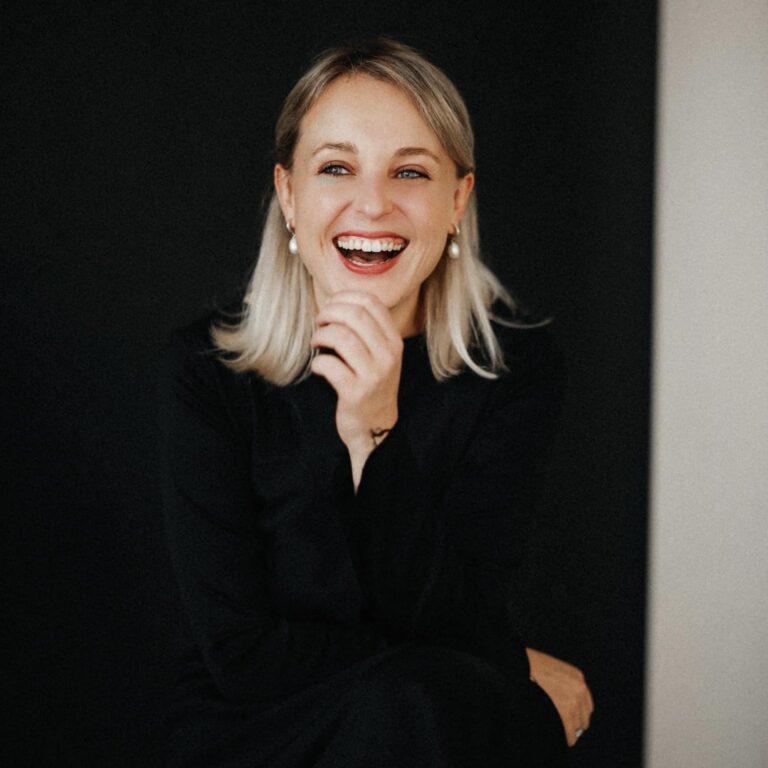
Alexandra Drobysheva (Weirfield, 2002-2006) is a successful entrepreneur and CEO. Having worked in both New York and Moscow, Alexandra is now based in Bangkok with her husband and 5-year-old son, Boris. We talked to Alexandra about her time at Taunton School, her favourite teachers and how OTs can get into the world of PR.
How did you come to be at Taunton School?
I was born in a small town in the Urals Mountains (Russia) and my parents wanted to give us the opportunity to come to school in England. They hadn’t had access to the best education themselves and wanted to give us the choice of where to go. As the younger sibling I followed my sister, Ksusha Drobysheva (Weirfield, 1999-2003) to Taunton. I am not sure why she picked Taunton, but I think it was mainly the beautiful setting of the school.
There are some great quotes in the Tauntonian about your prowess in the art room and the bond of the girls in Weirfield.
I really enjoyed my time at Taunton, and I am still friends with a number of OTs, mainly the girls from Weirfield. I still speak to Louisa Evans (Weirfield, 2002-2006) and Polina Magiy (Weirfield, 2002-2004). I am planning on seeing Rosie Batt (Weirfield, 2004-2006) and Elly Richarson (Weirfield, 2004-2006) soon. I am so grateful to the school for the education I received and the friends that I made.
Which teachers had an impact on you?
My art teacher, Mr Wilson, was inspirational and was very important to me, he made the whole class feel like they are true artists. I also loved history, especially with Mr Chatterton. His lessons were fantastic, and he is one of the smartest people I have ever met. I remember the time he invented the ‘Parson’s Award, which was given to the pupil who submitted the most tedious A-Level coursework. I was asked to create a sculpture for the award. (Editor’s note: the award is still given every year with the winner’s name engraved on Alexandra’s trophy. Alexandra’s drawing of the history department also continues to hang in the history corridor.)
What did you do after school?
After leaving school I went to New York for an internship. It felt just like the film, The Devil wears Prada. I was running clothes to photoshoots at Vogue and attending high-profile events. In those days you had to fax over a press release, it feels like a different world. After the experience I knew I wanted to work in PR.
After New York I returned to Russia and worked for the State Nuclear Reactor Corporation. The role was very different to my time in New York, but I wanted to see how PR works in the completely different industry sector. After this I worked for a large agency in Moscow, but I left when the chance came to work on the 2014 Sochi Olympics. I was working long hours, but it was a once in a lifetime opportunity. I then left to start my own consulting company and, when I was just in the planning stages, several of my former clients reached out and asked me to put a team together. I work with huge brands like Total, Hilton and Crate and Barrel, organising areas like their PR, events and digital marketing. I also teach PR at a university in Moscow and recently received the Impact Award from the Global Women in PR Association.
In 2022, I decided to look at opportunities in Asia, especially since together with my team we have been doing campaigns for the Asian markets for the last couple of years. I moved to Bangkok and really enjoy the cosmopolitan nature of the city and its location means you can travel to so many different parts of the world.
What did Taunton School teach you?
The school taught me confidence which has given me real security. I know that I can push myself and, that when I work hard, I can achieve what I want. I also learned that you should ask for help when you need it.
What advice would you give OTs who want to get into PR?
PR is all about people and communication. You have to really like working with people and be a good communicator. I would recommend starting out in an agency, as you get to see how different firms work and achieve their communication goals. You can then choose to go and work in-house or stay at an agency.
Bernard Glass
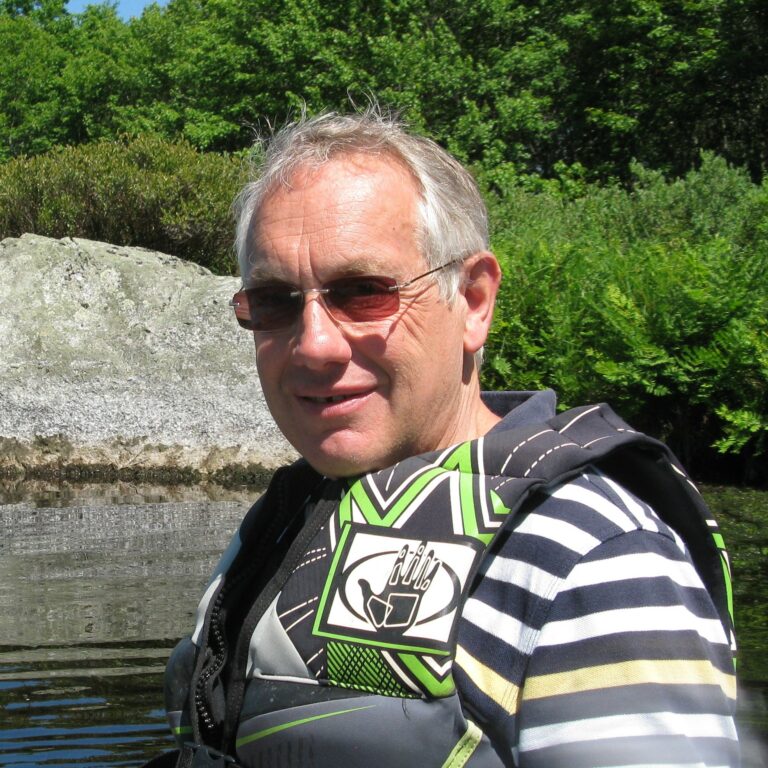
In this interview, Bernard Glass (Thone, Loveday & Wills East, 1963-71), shares his memories of the school and of his career as a partner at PricewaterhouseCoopers, PwC. As a Wills family member, he also explains the family connection with the School.
Did your family connection have any impact on your time at school?
Not as far as I am aware. If the school knew the connection they didn’t make it apparent. Whilst I obviously knew my mother was a Wills and there was a clear link, at the time I had no knowledge of the detail or the extent of it. My brothers and I knew that my father was an Old Tauntonian and that seemed to be the principal connection with the school.
So, what are your family’s links with Taunton School?
William Day Wills (‘WD’) was the original Chair and Senior Founder of Taunton School. WD’s only son was William Henry Wills, who became Lord Winterstoke.
My brothers and I are great great grandchildren of Henry Overton Wills II (‘HO’), WD’s brother and partner in their tobacco business (WD and HO Wills). HO had 19 children. 3 of his sons attended Taunton School. His youngest son, my great grandfather, Sir Frank Wills, was the architect of the School Chapel, donated by his cousin Lord Winterstoke. Lord Winterstoke’s adopted daughter, the formidable Janet Stancomb-Wills continued support for the school after his death. She gave the old Winterstoke Library to the school in his memory and in 1912, the Wills boarding houses. She was a great philanthropist and, for example, helped fund Shackleton’s 1914 expedition to the Antarctic. This resulted in her name being attached to one of his lifeboats and an Antarctic glacier! She was honoured for wartime services with one of the first Damehoods in 1918. My grandfather, the youngest son of Sir Frank, happened to be one of her executors. Probably as a result of that, for several years I, unwittingly, used one of her luggage trunks, marked with her initials ‘JSW’, for school.
There are no living descendants of WD Wills. In contrast, I and my brothers are among the countless descendants of HO Wills.
What did you get from coming to Taunton School?
Beyond a great education, the School gave me independence and self-sufficiency. You didn’t have parents at the end of a mobile phone, and although I believe you could call home, you didn’t. We had two ‘exeats’ a term and that was it. You had to learn to be self-sufficient.
Exemplifying that, I decided in Summer 1970 to solo hitchhike around Europe. It was naïve but it was hugely rewarding. I went all the way to southern Spain, back across the south of France and down to Naples. In early September, I ended up at Monza to watch the 1970 Italian Grand Prix. After the race I hitched back through Switzerland and France, only just making the start of School.
Which teachers inspired you?
From autumn 1970 my housemaster was Chris Evans (TS 1966-85). He was down-to-earth, approachable and caring. He seemed to understand the boys in the house and we felt that we had moved into a new modern era. His predecessor, Ernest Neal (TS 1946-71), whilst an extraordinarily scholarly man, was from a different and more traditional generation.
Roy Exton (TS 1949-81) taught me maths. He was legendary for his wall to wall rotating ‘blackboards’. He was genuinely enthusiastic and inspired my love of maths. It seemed like magic until he unwrapped the secrets. I wasn’t aware that he did much in the school outside of the classroom but then in summer 1971 he offered to take a group of us along the North Somerset coast from Porlock to Minehead. He had worked out all the tides so that we could squeeze along the beach and lower cliffs. It was a great day and we saw a broader side to him. One of my regrets is not coming back to thank him before he died (January 1999).
There were many others but those two stand out.
What were your favourite memories of School?
My main memories seem to start in Wills East. An early one was building a truly huge ‘snow woman’ at the back of the house. It started as a giant snowball but ended up as high as the first-floor window. We had a lot of snow that year (1969?) and a picture of the giant construction made the Tauntonian.
Rugby and swimming were my two sporting activities. Winning the house rugby cup, as part of a very young team, in 1970 was a major achievement. We fought Wills West to a 3-all draw in our semi-final and, since the other semi was also drawn, the opponents were changed and the semis replayed. We prevailed in both subsequent games. Given we had virtually the same team, retaining the cup in my final term in autumn 1971 was relatively straightforward.
I enjoyed swimming and it’s a passion I have kept up, swimming almost every day. In my Lower Sixth year my swimming really improved and I was awarded my School colours. [Editor’s note: The swimming coach from 1963-71 was Mr White and Wills East won the House Swimming in both Bernard’s Lower Sixth and Upper Sixth years.]
What did you do after Taunton?
I was awarded an Exhibition (Junior scholarship) to Caius College, Cambridge and studied Natural Sciences and, in my final year, Theoretical Physics. I spent too much time enjoying myself and deciding I didn’t want to be a scientist so my time in Cambridge was not littered with plaudits.
I applied to accounting firms in January 1975. I had decided that dealing with money would be more rewarding than being in a lab. I had an interview with one firm and the interviewer, who was wearing a classic pinstripe suit, raised his eyebrows as I replied to his question, “Why do you want to be an accountant?” with the admittedly somewhat naïve response, “because I think it would be fun!”.
Price Waterhouse, as it was at the time, was very impressive. It was professional, modern, and looking to the future. From the moment I went into the interview, everything felt crisper and clearer and their recruitment messages really came through to me.
What was it like to work at PwC?
The one word that sums up PwC is truth. Truth is central to everything the firm does, it says it in the audit report and it runs throughout the organisation. I worked there for over 34 years, retiring nearly 14 years ago, and I am hugely proud to have done so.
Before I became a partner, and the day after the birth of our first child, my boss, Chris Bull, also coincidently an OT, called me into his office. He asked if I would go to New York for a period to support our business out there. When you wanted to be a partner it was an opportunity you wouldn’t refuse but I had to negotiate with him to allow me a few days to discuss it with my wife. The answer was, of course, yes.
What were you most proud of doing at PwC?
I was advising companies on their global tax position and by the end of my 34 years I had a set of blue-chip clients including Tesco, Diageo, Cadbury, General Electric and Vodafone. This was partly the benefit of having been at PwC for a long time but I had brought some of these companies to the firm. They came to me for tax advice and a number subsequently became PwC audit clients.
Clients appreciated a hands-on approach, so I tended to roll my sleeves up and get deeply involved. If I got a call from a client with an issue, I would, invariably, pop over to their offices and we would get the whiteboard out to work through what needed to be done.
All in all, the school gave me many good memories and a great education. The education was undoubtedly a springboard to Cambridge and an enjoyable career.
Kathy Guernsey
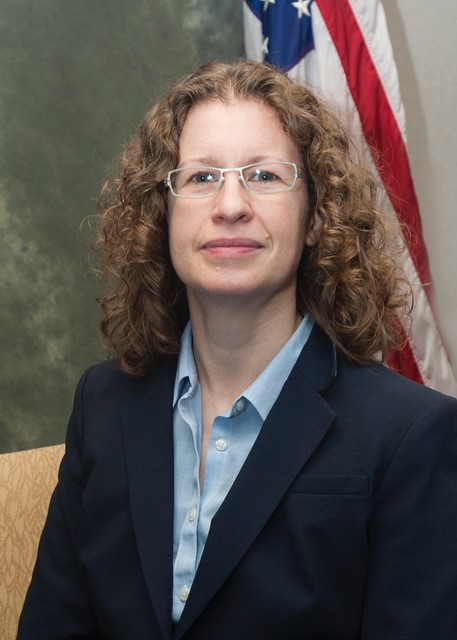
Kathy Guernsey (1984-1994, Lancaster & Bevan) is a public international lawyer who has dedicated her career to the field of human rights, with an emphasis on disability-inclusive development and diplomacy.
What are your strongest memories of the school?
I loved Taunton School and the enthusiasm of the teachers. I remember Dr John Lewis (TS 1981-93), Head of Science, showing us a video of cows chewing the cud simply because he said it was ‘delightful’. I was soon swept up because the teachers brought such a level of enthusiasm. Taunton School also built my confidence, I got involved in fencing, the DofE award scheme, and Adventure Training which included mountain climbing in Scotland.
How did you go from Taunton School to international law and a specialism in disability-inclusive development and diplomacy?
I’m one of those awful people who from a very young age knew what I wanted to do; be a lawyer. My Grandpa was an appellate judge in Ohio and when we would go out to the states to visit, he took me to the courthouse to meet the lawyers and sit in his chair on the court’s bench.
After Taunton School, I went to Ohio Northern University, then law school, and then I did my LLM at George Washington University. When I finally started working, I joined an NGO focusing on landmine survivors. I arrived there just as the drafting process for the Convention on the Rights of Persons with Disabilities was kicking off at the UN, and this organisation decided that the way they could contribute was via the expertise of their lawyers, so that’s what took me to the UN.
Later I was at the State Department as a political appointee for six and a half years during the Obama administration – I was the senior policy advisor to the Special Advisor for International Disability Rights, a woman by the name of Judy Heumann who you can see in action in the Oscar-nominated documentary film Crip Camp (2020).
Kate Hughes
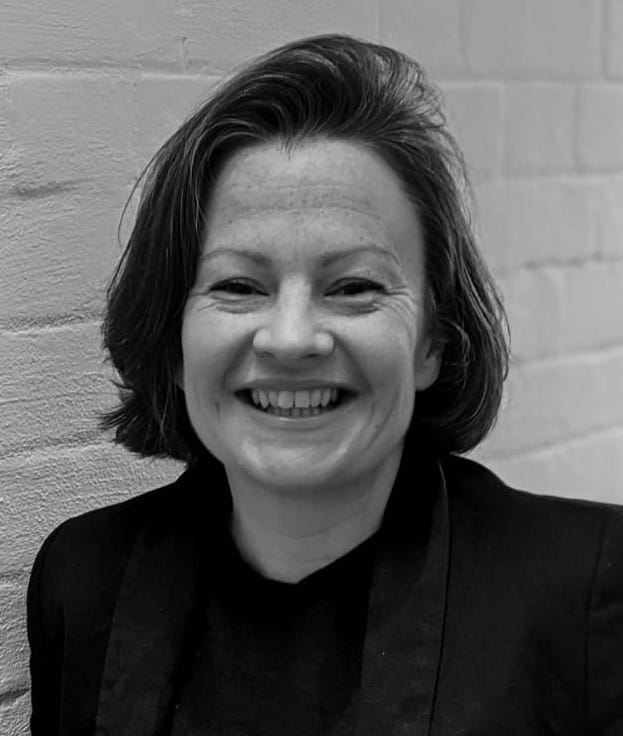
Kate Hughes is an award winning journalist, bestselling author, and a regenerative and organic Exmoor farmer. Kate’s two children currently attend Taunton Prep School.
Could you tell us about your career journey and how you got into journalism?
I was one of those annoying kids who knew what they wanted to do from the age of 8yrs. When I was 12yrs I met Kate Adie when she visited my school. I wasn’t supposed to be in the room, but I wrangled a place and it was absolute confirmation that journalism was where I wanted to go in life.
And you went straight from studying to the Financial Times?
Yes, it was a mixture of luck and naivety that got me the job that would kick start the rest of my career – which is true of a lot of journalists! I’d written a couple of articles while I was at university for local newspapers and also for a very new online portal. When I then went for an Editorial Assistant job in 2002, they looked at my CV, went ‘ooh you know how to do the internet’, and gave me the editor’s job on the new Financial Times business website instead.
Where did you go after the Financial Times?
I went to the Independent as Finance Editor, where I stayed for 15 years. The week I started was the week that Northern Rock collapsed. The next year was absolute chaos. I was interviewing hedge fund managers who’d basically cashed in their chips, bought an estate in Scotland along with gold bullion, canned food and weapons. They just thought that was it, the apocalypse was nigh.
How did you move from financial to environmental journalism?
The Independent ran a campaign called ‘twenty pledges’, where they got twenty members of their own staff to change something fundamental about their life to help fight climate change for a year and write about it. That was easy for me as we were already a zero waste, no fly, second-hand everything household. My pledge turned into my own column and it’s now a broadcast spot for the BBC, as well as a book “Going Zero: One family’s journey to zero waste and a greener lifestyle”. I’ll never forget stumbling across my own book next to Greta Thunberg’s and David Attenborough’s in the Natural History Museum gift shop!
Tell us about your farm, Wood Advent?
Wood Advent has been in David’s family for 300 years, it gets a mention in Doomsday Book and there’s even a Neolithic enclosure on the site. So there’s a lot of history there. But now it has to survive climate change so we have converted it to a regenerative, organic farm. I love the intellectual challenge of learning about a new industry. Thank god for A-level Biology though!
What would be your biggest tips to live a greener lifestyle?
What we’ve done is radical, but we felt it was important to be radical because we haven’t got time to be anything else. So my suggestion is simple: do something and be brave about it. Don’t wait for change to arrive at your doorstep or for business leaders or policymakers to do it for you. And don’t look for perfection, nobody will ever achieve the perfect environmental lifestyle. What we can all do though is try harder. Our survival as a species now depends on it.
Do you have any advice for students wanting to get into journalism?
Always listen. Journalism isn’t about you, it’s about the information you are trying to convey. Don’t be the person who shouts loudest in the room – not least because they are rarely the best informed. The best journalists are the people who think less about themselves and more about the story.
Why did you choose Taunton School for your children and what were your first impressions?
From the outside, ours is the kind of classic, slightly boring story. My children are the third generation of my family to attend this school and my husband, David Brewer, was Head of School, which we obviously tease him about a great deal. He loved this school (I’m not sure he’s actually ever left!) but he didn’t want to influence me. So I came to look around by myself the first time.
I wasn’t looking for hallowed halls or perfect cricket pitches, or even the great network of future PMs, bastions of industry or judiciary heavyweights. I wanted to empower my children. Ultimately, all anybody wants is for their kids to be happy and healthy, but you can’t deliver that on a plate. They have to be able to go out into the world and grab it. In so many ways, life is about one word for me, empowerment, and we found that at the school.
Helene Jewell
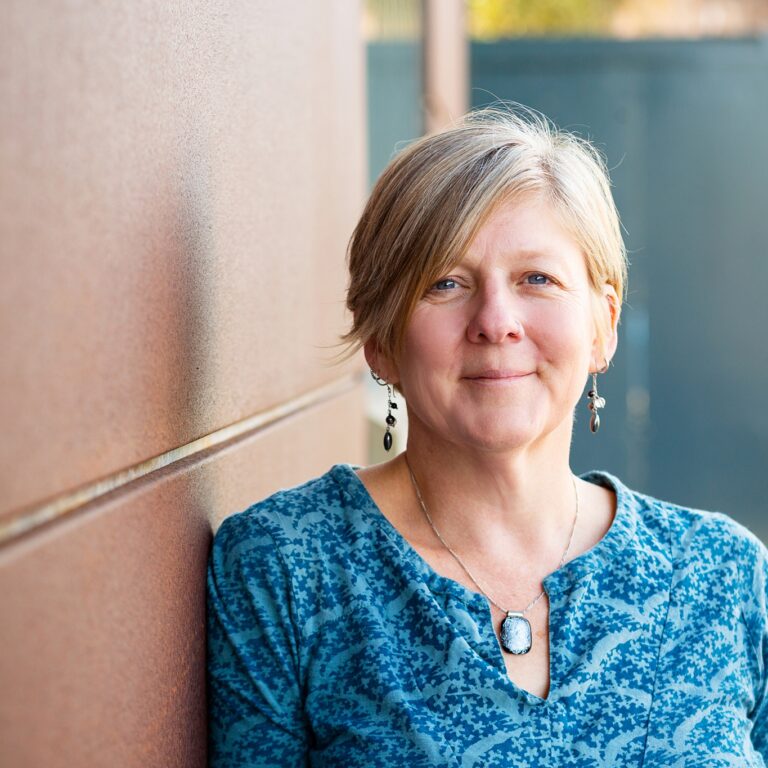
Helene Jewell (1984-1992, Bevan) runs her own business, Jewell Facilitation, which helps teams and organisations work in a more collaborative, cohesive and connected way. Helene shares her happiest memories from Taunton and her career path since leaving.
What were your first reflections of Taunton School?
How huge it was, and how impressively grand the buildings were!
What are your happiest memories from Taunton School?
Some of the things that I look back on that make me smile (in no particular order) are: a load of us watching Neighbours in the lunch break in a classroom with one of the lab technicians (we weren’t supposed to be of course!), doing Duke of Edinburgh’s and the Ten Tors – laughing now at the memory of waking up in our tent (on a practice walk) totally drenched as the teacher had us all sleeping next to the tributary of a river with heavy rain overnight! Being in the swimming team, going to Mozzies at break and hanging out in Bevan with my friends eating hot buttered toast at breaktime.
What did you do after Taunton School and how has your career changed?
I went to Manchester University, qualified as a Speech and Language Therapist, and then got my first job in London. After a couple of years, I went to train special needs teachers and community development workers in Nepal as a volunteer with Voluntary Services Overseas (VSO). As I had learnt Nepali (which I can still speak well) I then got a job working for the International Committee of the Red Cross (ICRC) as an interpreter – all together I lived in Nepal for four years before coming back to the UK and doing an MSc in International Development at Bristol University. I continued to work in that field for a while, got married, had my daughter (and fairly quickly discovered that a career in International Development is not easy with a baby!). I stayed in Bristol and worked for several charities before setting up my own business in 2014 a year after my son was born. My company, Jewell Facilitation, will be 10 next year – I specialise in Facilitation and Organisational Development consulting. If you had asked me when I was at Taunton what I might be doing 30 years after leaving school, running my own business would have been the absolute last thing I would’ve said. But I love it and get to work with all kinds of different organisations, helping teams collaborate, develop visions and strategic plans, identify values, and improve communication and team culture.
How did Taunton School help you get to where you are now?
Access to amazing resources, opportunities and educational experiences and a very rich and privileged education. More importantly perhaps it taught me resilience, the importance of finding your people, that kindness goes a long way and that the most valuable contributions are usually to be found when we take the time to really listen to those that are not shouting the loudest. This is something I bring to my work as a facilitator.
Marina Litvak
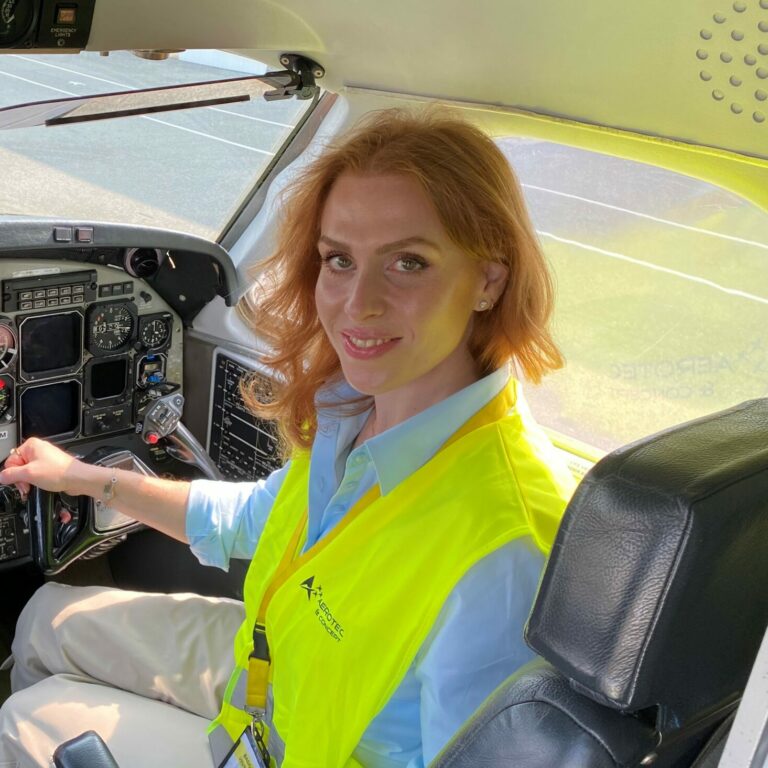
Marina Litvak (1995-99, Gloucester) is currently General Counsel at ACIA Aero Leasing. Here, Marina shares her reflections of coming to Taunton from Siberia, her initial struggle with the English language and her advice to those interested in a legal career.
What were your first reflections of Taunton School?
I had only visited England for a summer school, so it was a massive change for me. It was also a bit of a shock as I was always a top student back in Russia, but when I opened my history textbook at Taunton School, I realised I couldn’t understand much of it at all. I had to translate pretty much every individual word. The boarding experience was also a very foreign concept and a challenging one! Initially, the biggest challenge was to improve my English and to adjust to the new system of education, which is what I focused on, but soon my efforts bore fruit and I started getting the grades I was used to.
What did you get up to at Taunton?
Because of the initial language barrier, I stayed in a small Russian clique at the start. I am still great friends with Petr Baron, Anna Baron-Maximova and Julia Kovyliaeva. They are like family to me, there is nothing that can replicate living in a boarding house together and overcoming the hurdles of being in a foreign country, away from family and friends in a totally unfamiliar environment. I was put in Gloucester House and was very proud to become a Prefect in the U6. I really enjoyed the team spirit of being in a boarding house and competitions, such as house singing.
History was one of my favourite subjects and Mr and Mrs Nash were great teachers and provided a lot of support, as did Mr Chatterton. My education at Taunton could not be more different to that in Siberia. I had never been asked to write an essay before, it was all about regurgitating facts. At Taunton it was much more analytical and critical, with the need to bring in my own opinion. I was very proud to be awarded the Telfer Prize for my Social Biology A-Level Project.
What did you do after Taunton?
Whilst at Taunton, I did work experience in a city law firm and saw that law could be much more than just a court room. However, I wanted to do a broader subject for my degree and went on to do an International Relations degree at Sussex, before completing a law conversion course at the College of Law. That course was the hardest thing I have ever done. I had to learn so much case law. After completing my legal practice course, followed by an LLM, I secured a training contract with an international law firm, now called Bryan Cave Leighton Paisner. During the training contract you do four ‘seats’ of 6 months each, trying different aspects of the firm’s legal practice. One of my seats was in Asset Finance where I helped with a shipping transaction in Turkmenistan, one of the former Soviet republics that still speaks Russian. The partner working on the deal was struggling to communicate with one of the local parties and, as the only Russian speaker in the firm, I was asked to help. I really enjoyed the experience and therefore chose to qualify in this area of law.
During my practice with the firm, I covered areas like shipping and super yacht financing, but later chose to specialise in aviation finance law. I was at the firm for 11 years during which I progressed to a Senior Associate and worked on some fantastic deals with some great clients, but I wanted to make some changes as I had a young son. One of my clients had asked me to become their in-house legal counsel, which I did for five years, before leaving to become General Counsel for an international group of companies that specialise in regional aircraft leasing.
Geoff Matthews
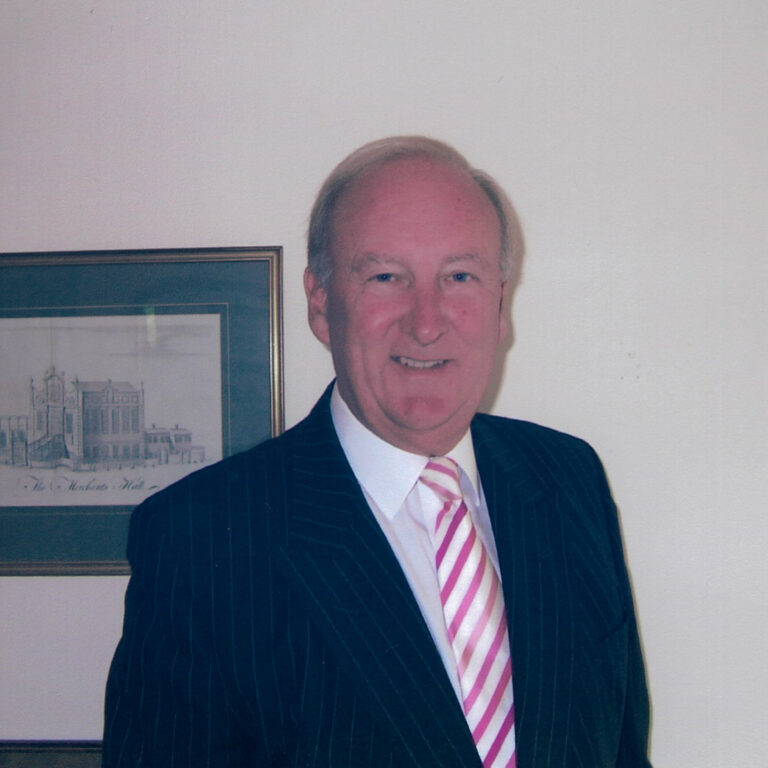
OT and former Governor, Geoff Matthews (Loveday & School House, 1949-1959) shares his memories from his time at Taunton and talks us through his wide-ranging career since leaving school.
You were at Taunton School from 1949 to 1959 attending first Loveday and then School House. How did your parents come to choose Taunton?
My father knew one of the Wills family from work and they had recommended the school. He came and had a look at it and said he’d like me to go. At nine, I wasn’t sure how I felt about coming, but I settled in rapidly and loved it.
Who were your close friends, in the Tauntonian you and Paul Masters (1955-1959, School House) get the most mentions, was he another all-round sportsman?
He was great, he played for England Public Schools’ rugby and went on to play for Bath for a couple of seasons. The Headmaster persuaded him to stay on for the Autumn term of the fourth year sixth, to be Head Boy. He was also the best man at my wedding, we are still in touch most weeks.
How did your experiences at school help you later in life? I read that you were a School Prefect and obviously sport was important to you?
There were three important things that Taunton taught me; how to get on with people, independence, and a love of sport. Importantly, the school taught me to treat all individuals with respect. Later, being able to talk to people, no matter their job, was crucial. It’s all about building relationships.
Were there any teachers from your time at Taunton that had an impact on you, good or bad?
The most influential was Peter Smith, who was Housemaster of Loveday and then subsequently School House. My father, who was 51 at the time, died whilst I was at school. I was just coming up to 17 and Peter Smith was the one who told me about his death, he kept an eye on what I was doing and offered advice.
What subjects did you study and where did these take you after university?
At A-Levels I studied English, History and French. I never felt particularly academic, but I managed to get good enough grades to study History and Economics at Bristol University. I wanted to go back to Bristol as it was where my mother lived with my younger sister, who was 11 at the time, and I wanted to help at home. We had a family car, that my mother couldn’t drive well. I did an intensive three weeks of learning to drive and managed to pass the test.
What made you choose to work at Imperial Tobacco after university?
I wasn’t an academic and I hadn’t got the training or inclination to be a lawyer or do accountancy. I applied to three of the larger businesses, Mars, Clarks Shoes and Imperial. I wanted to work for a company that would train me across the business, which is what Imperial did for the first year. I saw every corner of the business. After the first year, I knew I wanted to work in production.
For my first role, I was handed half a cigarette factory to run with over 1,500 people reporting into me. I was responsible for the total supply and distribution of goods, and cigarette making and packing of over two billion cigarettes a year.
Were you impacted by the unions, strikes and the three-day week that seemed to plaque the early 1970s?
I’d been in the in the job about three weeks when the Foreman of the stores department came running into my office at 8:00am and said, “They won’t work”. I went to find out what was going on and there were 20 people sitting around. I don’t know who was more nervous, them or me. Two trade union members, including the branch secretary of the Tobacco Workers Union said they weren’t getting enough money, et cetera, et cetera. I said, ‘Right you and you come down to my office at 11:00, the rest of you get back to work’, and they did. That was my first and only strike. We talked and agreed on the way ahead, so everyone was satisfied.
I then got promoted to oversee the building of a new cigarette factory in South Bristol, the largest at that time in Europe. I relocated the two current factories into the new one with a slimmed down workforce. About 1000 jobs went. We treated people with respect, agreed terms, allowed people to take voluntary redundancy and did it all in a consultative way. I ran the new factory for three years and then became Production Director of all the factories. We were producing cigarettes, cigars, and pipe tobacco, in 12 factories and employing 12,500 people.
Then you moved to Elizabeth Shaw, famous for their chocolates. What made you make that move? Hanson had taken over Imperial in 1985. I worked closely with them for six months and they then asked me to run Elizabeth Shaw. I didn’t know anything about the production of chocolate, but I got under the skin of it quickly. We had 500 employees in the factory in Bristol making the chocolates and a factory of 300 in Southport making Chewits.
We were doing well but Hanson decided it was time to dispose of the food division and sell up. I began to investigate groups that were interested in buying the business. I met with one and soon realised they cared more about the brands than the people. So, I decided to go onto the other side of the table and negotiate with Hanson to buy it. £25 million later we had a management buyout and owned the company.
After three years of running Elizabeth Shaw, I sold it to the Leaf Group, the tenth largest confectionary business worldwide and based in Amsterdam. They wanted to develop it further and it was expanding quite rapidly. I stayed on for a year, recruited my successor and decided to retire at age 52.
You didn’t retire though, what made you change your mind?
We travelled for a year, enjoying our lives, and I spent time sailing. I wasn’t getting bored, but then the phone rang. It was the head of Leaf group, and they were buying nine companies from a Swedish group. They were spread across Europe, from Helskini to Alicante and they asked for my help. I suggested I could come and help for seven months, but seven years later and I was still there working out of Amsterdam. I become one of the Vice Presidents of the group, working worldwide, looking at how the businesses were run and new opportunities for developing internationally.
In the meantime, I was approached by the Bank of Ireland UK and asked to become a non-executive director – eventually becoming Vice Chairman of the UK operation. I also Chaired their pension fund that rose to £700 million and only stopped managing that in 2020. And I also managed to fit in being a member of the Bristol Development Corporation during its lifetime. Both roles were challenging but enjoyable.
Alongside your business career, you’ve done a significant amount of voluntary work – what did this include?
At various periods I was President of the Greater Bristol Community Foundation, President of Young Bristol, a member and then Master of the Society of Merchant Venturers, a Governor of Taunton School and two local ones including Clifton College and Colston`s Girls School.
I enjoyed putting something back into schools and bringing an external experience. Especially helping Taunton, the school that did a lot for me. A lot of the issues that the schools face, are the same as in a business.
What advice would you give to students leaving Taunton today?
If you want to go into a business, you need to keep an open mind and respect everyone. Those below you and those above you. Also, enjoy what you’re doing and think positively. If somebody comes to you with an opportunity, always look at it with an open and positive frame of mind.
Georgia Messervy
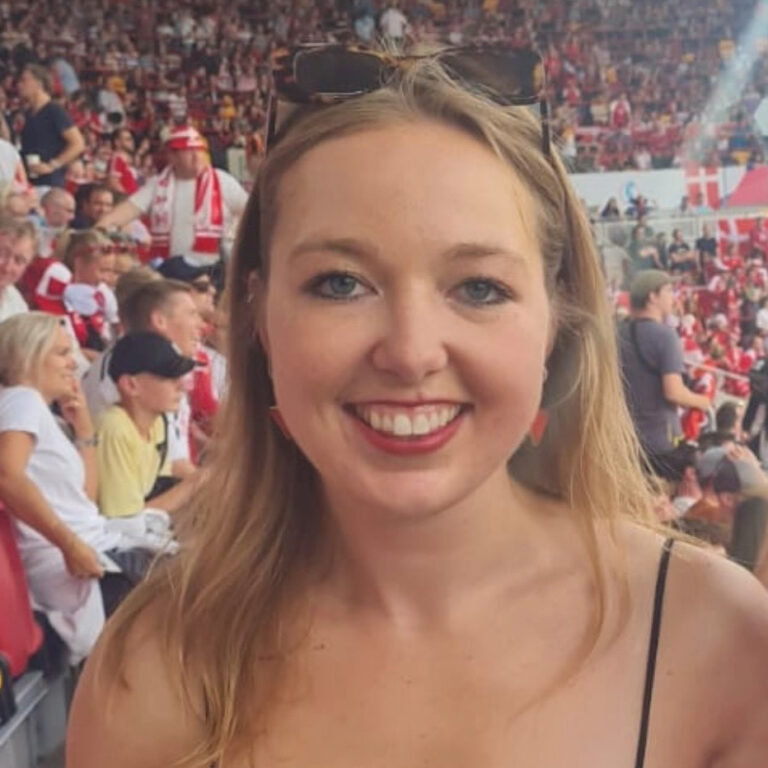
Georgia Messervy (2005-2012, Bevan) tells us how her love for art history, discovered at Taunton School, led to her current career and working at one of the world’s leading contemporary art galleries.
What is your happiest memory from Taunton School?
The sense of freedom, community, and independence that the school supported in all students – no matter their talent or ability – always encouraging us to find our niche and enjoy doing so. That, and some really great puddings at mealtimes!
What do you do now and what do you find most enjoyable about your career?
I now work in the curatorial/artist liaison department of one of the world’s leading contemporary art galleries, based in London. I love the diversity the job brings on a daily basis, and the ability to meet and work with people from across the world – something I also loved about Taunton School.
How did Taunton School help you get to where you are now?
I wouldn’t be here without the cultural studies club and Mr Moule’s art history lessons. He was the greatest guide and teacher and helped me realise my love for art and art history. I chose to study art history at university because of how much I loved his classes, and would never have discovered this career without him!
David Murrell
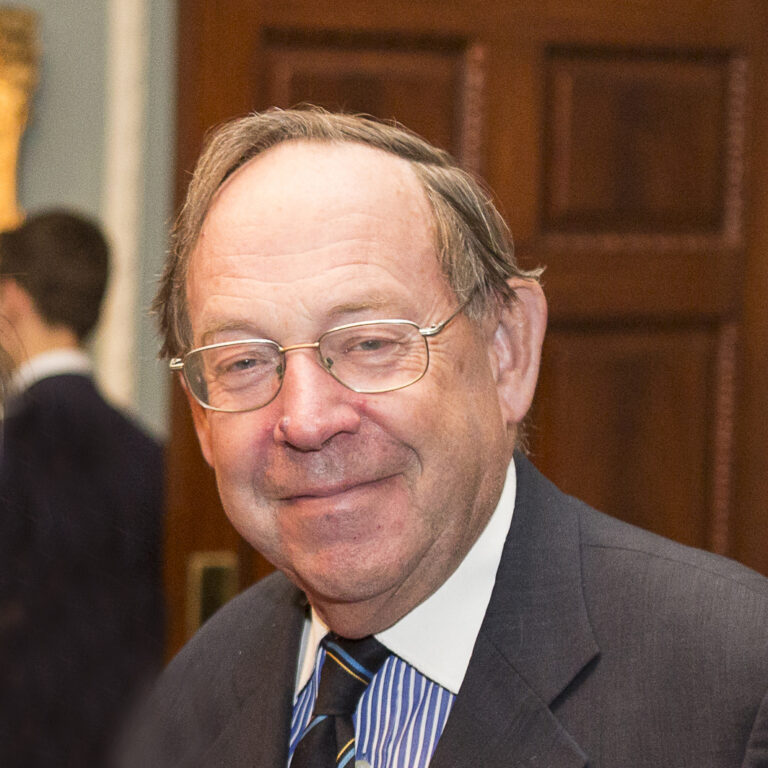
David Murrell (1956-61, Somerset) trained as a chartered accountant and became a partner at Peat, Marwick, Mitchell & Co (now KPMG) at the age of 35. He specialised in the film, television and music industry, becoming the Head of KPMG’s UK, European and later worldwide media and entertainment practices. In 1972, David played at the OT golfing event at the legendary and beautiful Swinley Forest where he has played every year since – he has been organiser of the OTs’ golf day at Swinley for over 20 years.
Time at school
My father (William) joined the school in 1923, leaving at 16 to join a housebuilding company in Minehead. He subsequently bought out the owner on his retirement. Both my brothers (John and Eric) then attended Taunton in the 1950s before taking up craftsmen’s jobs in the family’s housebuilding company.
Being significantly younger than my two brothers, due to my father being in West Africa during the WWII, I attended the school after their departure, travelling every day on the steam train from Minehead. In the spring and summer school holidays I played golf with friends at least three times a week and my handicap fell to 16.
Life after Taunton School
On leaving the School in 1962 I took a five year training/articled clerkship with Amherst and Shapland in Minehead and passed the three necessary exams to become a Chartered Accountant. At that time it was considered a good idea to join a then Big 8 accounting practice in London for three years to gain a wider experience and I was promised a partnership if and when I returned to Minehead.
During the five years, the future looked bright and I never went back to work in Minehead. I was promoted three times and managed my own department of 40 accountants. At the age of 35, I was appointed a Partner in the London office of Peat, Marwick, Mitchell & Co. (now KPMG). In the next 19 years I had a large portfolio of household-name clients and carried out assignments in Europe, Dubai, Japan and Kuwait. KPMG started to specialise more and my clients included the Rank Organisation with Pinewood Studios, Odeon Cinemas, Rank Film Laboratories etc., Chrysalis and Virgin Music and London Weekend Television.
As I was deemed to be a specialist in the film, television and music industry, I became the head of KPMG’s UK, European and later worldwide media and entertainment practices when they were established. Because of the success and rapid growth of this practice I also became head of worldwide marketing for KPMG with a huge budget of many millions to promote the firm as a leader of the Big 4 accounting and financial consulting firms. This led to me signing KPMG sponsorship deals with golfers Phil Mickelson on the US Tour, Ronan Rafferty on the European Tour and the late Malcolm Gregson on the European Seniors Tour.
I left KPMG in 2000 and, amongst many other assignments, joined the Board of the Stock Exchange, listed Chrysalis Music and Television Group as Senior Independent Director, became the President of the Cinema and Television Benevolent Fund (now renamed the Film and Television Charity) and held positions in several other businesses. I support the Variety Golf Society and several other golfing charities, I’m very happy to support the OT Golfing Society and I believe I was very fortunate to go to Taunton School, I’m so glad that my father sent me there.
Kristy Potter
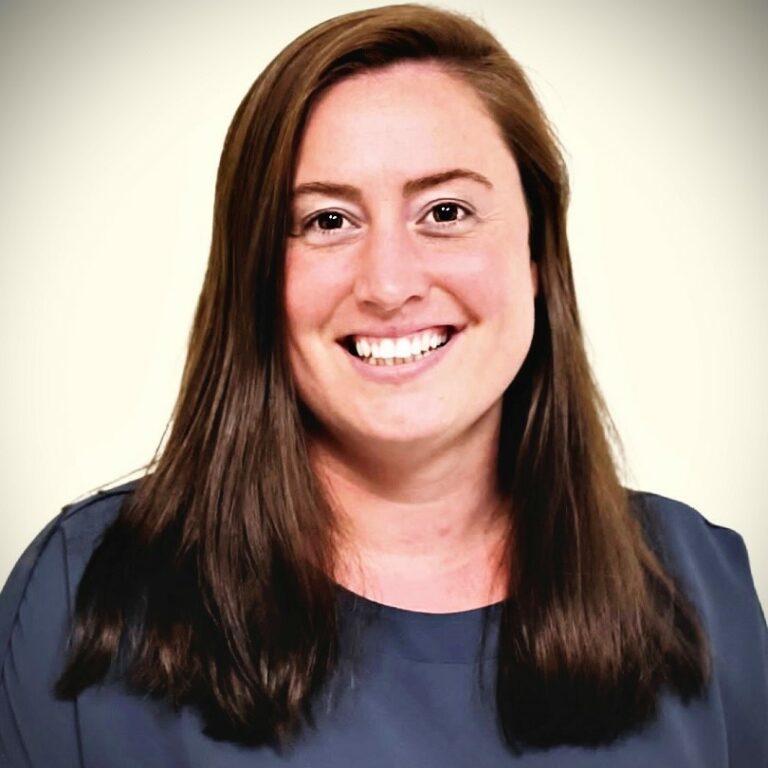
Dr Kristy Potter (1998-2008, Bevan) gained her doctorate in Clinical Psychology from the University of Nottingham and previously worked for the NHS and the Ministry of Defence, before moving to Bermuda to work as a Senior Clinical Psychologist.
What is your happiest memory from Taunton School?
My happiest memory of Taunton school is a tricky one, 11 years comes with a lot of memories! I remember, early on, having my birthday as a boarder at age 8 years old in Thone; we were allowed to invite students to watch a film of our choice and had a cake baked by one Matron. I can just remember the sheer excitement of getting to ‘host’ some of the day students in the boarding house for the evening! Moving to the senior school, there were so many memories, including going to the National Indoor Hockey Finals, general weekend evenings in the boarding house and the infamous house singing.
What do you do now and what do you find most enjoyable about your career?
I work now as a Clinical Psychologist; most people don’t know what this is and I often get asked if I’m a Psychiatrist. To clear this up, I’m not! We have doctorates but these are in Clinical Psychology rather than medicine. After leaving Taunton I went straight to the University of Nottingham where I did my BSc in Psychology, followed by an MSc in Rehabilitation Psychology. With my primary focus being on Neurological conditions, it was a natural move into a research role at the University of Nottingham, where I was able to work under the supervision of some world-renowned professors in the field of Neuropsychology.
After working for a couple of years I stayed at Nottingham for my Doctorate in Clinical Psychology and then worked initially in the NHS before moving into work with the Ministry of Defence in their new national rehab centre, again in the Neurorehabilitation ward. This is definitely a passionate area for me having come from a military family and spent time as a reservist myself. I love my career because of the variation and the opportunity to straddle both clinical practice and research; I’ve managed to stay active in research and sit in a number of different roles whilst keeping my publication record going! My key area of expertise is in Multiple Sclerosis. Recently, I’ve moved to Bermuda and have managed to set up some of these services here which has been a challenge in itself.
How did Taunton School help you get to where you are now?
Taunton School arguably set me up to manage the demands at the highest level of academia, but I would say more importantly it taught me how to manage competing demands and offer a high level of output. Having boarded from such a young age (7 years old), I learnt independent living skills and found that the pace of academic, sport and other demands at school gave me the best foundation to move this forward into my career. I loved the variety of sports and activities that were offered, particularly in the boarding part of the school and this gave such a roundedness that I’m forever grateful for.
Jeremy Soper
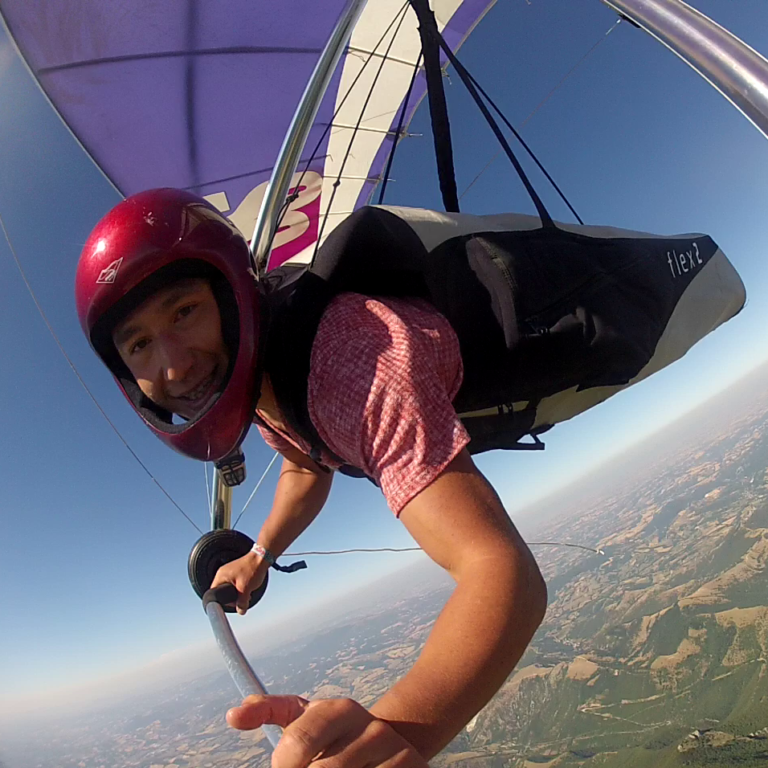
Jeremy Soper (2003-2013, Evans) has been selected to be part of the British Hang Gliding Team at the 2023 World Championships. He took the sport up in his final term at the school in order to overcome his fear of heights so that he could pursue his dream of becoming an astronaut. Jeremy subsequently designed, built and test flew his own hang glider and microlight, won the British hang gliding league, gained his aeroplane licence and is presently working towards his helicopter licence. Here, Jeremy talks about his happiest memories and how his time at school helped him get to where he is now.
What is your happiest memory from Taunton School?
Happy memories abound: sustaining 2 unbeaten seasons on the tennis courts as 1st team 1st pair, extra additional further maths (and industrial archaeology) with the inimitable Mr Cutts, castle bashing trips and related shenanigans with the encyclopedic Mr Moule and the cultural studies crew. The memory that really stands out is when I finally gained illicit access to the iconic clock tower after years awaiting the right Diem to Carpe! I congratulate Mr Brown on the discovery, though urge him to scrutinise the graffiti once more since I wasn’t alone in my endeavour.
What do you do now and what do you find most enjoyable about your career?
I’m presently Chief Operations Officer of Asteroid Mining Corporation (AMC), a space start up developing technology to exploit resources in space. There’s platinum in them there asteroids! We must become a fully space faring species and wean ourselves off Earth if humanity is to survive in the long term. Space mining and subsequently in-situ resource utilisation are the first crucial steps. AMC is turning science fiction into reality.
How did Taunton School help you get to where you are now?
For me, TS’ strength lay in the plethora of extracurricular activities on offer and the extra miles that many teachers were willing to go to provide a rounded education. For instance, shy by nature, I wouldn’t today have the confidence to present to space agencies or pitch to investors were it not for the various public speaking opportunities at TS, from balloon debates to delivering a school assembly on my trip to Tibet and even conducting 2 lessons on behalf of some very trusting teachers!
Sir Peter Westmacott
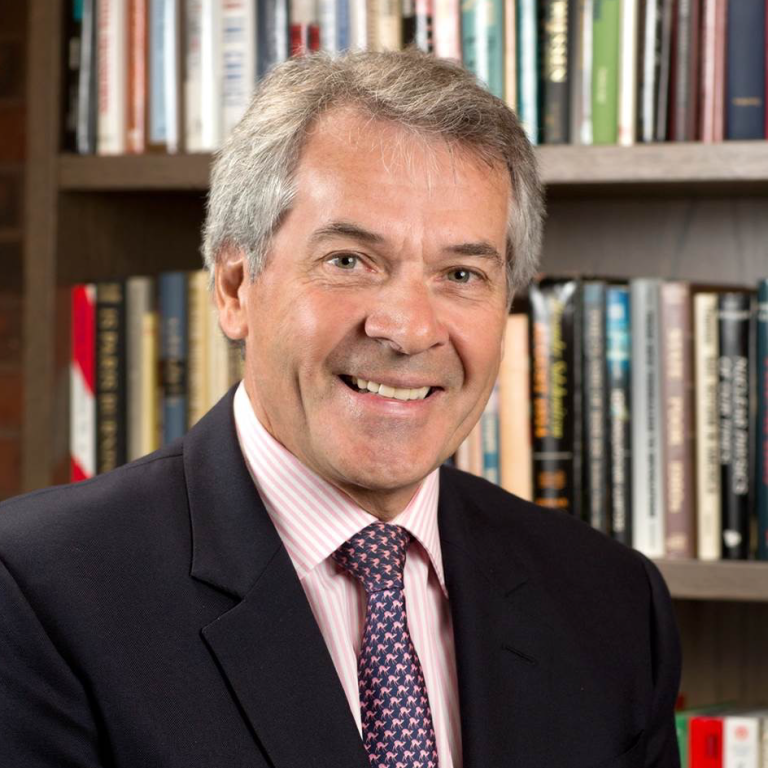
Sir Peter Westmacott (1964-1968, Foxcombe) was British Ambassador to the United States from January 2012 until January 2016. He then spent a semester at Harvard University’s Kennedy School of Government.
He was previously British Ambassador to France from 2007-2012 and to Turkey from 2002-2006. His 43-year diplomatic career included four years in Iran before the 1979 revolution and a secondment to the European Commission in Brussels. He was the Foreign and Commonwealth Office’s Director Americas from 1997-2000 and Deputy Under Secretary of State for the Wider World from 2000-2001. From 1990-1993, he was Deputy Private Secretary to HRH The Prince of Wales.
He is now a Distinguished Ambassadorial Fellow at the Atlantic Council, a Senior Adviser to Chatham House, Chair of the International Advisory Board of Tikehau Capital and of Tikehau Capital UK, and a Non-Executive Director of We.Soda Ltd, Ciner Glass, Volex Plc, and Glasswall Holdings.
Sir Peter was educated at Taunton School and at New College, Oxford where he is an Honorary Fellow
Michael Wheeler
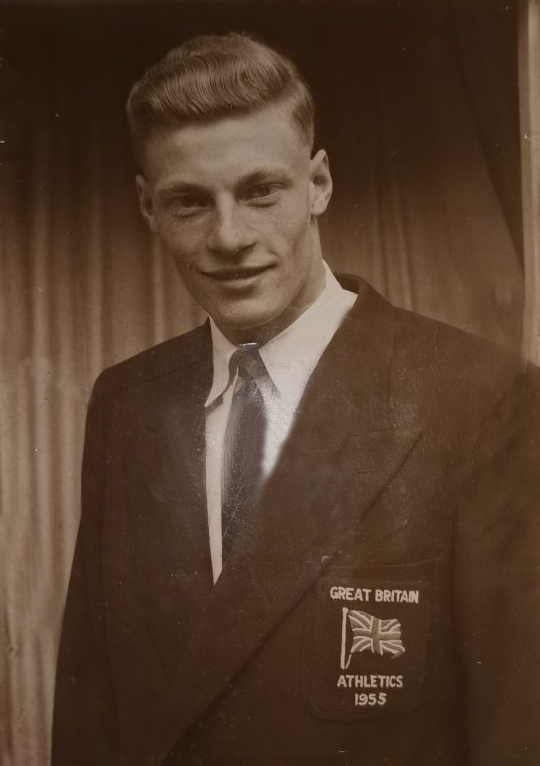
Michael Wheeler (1942-1953, Wills East) competed in the 1956 Olympics in the 4x400m relay, where he won a bronze medal alongside his teammates Peter Higgins, John Salisbury and Derek Johnson.
Michael’s first three years at Taunton School were during World War II, amid air raids and food shortages. The school grew vegetables on the playing fields and kept rabbits and chickens. Children from other schools (including Eltham College and King’s School, Rochester) were evacuated to Taunton School.
During his time at Taunton School, Michael (who was known as Mick as a child) broke several school records in running events, then went on to compete internationally, propelling him towards Olympic success.
Michael Wheeler died on 15th January 2020.

